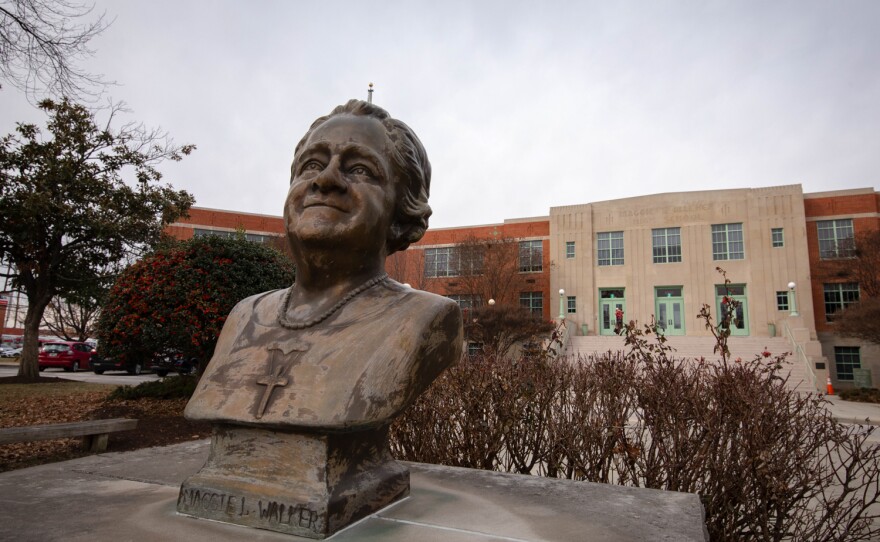It’s back-to-school time for many kids in the Richmond area — including the new freshman class at the Maggie L. Walker Governor’s School.
It’s the first class admitted under a new admissions policy that was approved in 2020, which ended the administering of an achievement test in an attempt to create a more equitable admissions process.
“There was a lot of talk about folks that thought we were lowering standards. And I firmly believe that we are not, we're just looking at things a little bit differently,” said Bob Lowerre, the school’s director.
For the 2021-2022 school year, both the achievement and aptitude tests were waived due to the pandemic. This is the first year that the aptitude test was administered without the achievement test.
“We’ve seen some incremental improvements,” said Lowerre.
The percentage of new students admitted to Walker who are Black was 4% in 2020, when both the achievement and aptitude tests were administered; 13% in 2021, when neither test was administered; and 8% in 2022, when only the aptitude test was given.
Genevieve Siegel-Hawley, a professor at Virginia Commonwealth University, said she recommends getting rid of the aptitude test, too. She pointed to research she’s done that found the origin of aptitude tests is rooted in the eugenics movement, a debunked pseudo-science that suggested there was a racial hierarchy in intelligence.
“We like to pretend that these aptitude tests are objective measures, but they are riddled with bias, both in this historical sense, but also, in terms of how the tests are constructed,” Siegel-Hawley said. “There's a body of scholarship that calls the SAT — the Scholastic Aptitude Test — the wealth test because the performance on the SAT is so correlated with family socioeconomic status.”
Siegel-Hawley and others have proposed additional changes to make the admissions process more equitable, including the implementation of a weighted lottery that takes into account students’ socioeconomic status.
Lowerre said there’s only so much that can be done to change the admissions process, and more needs to be done to increase the diversity of applicants in the first place.
The percentage of Black applicants to Walker was 18% in both 2020 and 2022. Lowerre said that means the school needs to do more outreach to make sure all students know that the school is an option for them in the first place.
To do that, he said the school needs to focus on making current students feel welcomed and supported, while also getting prospective students from underrepresented groups to envision themselves at the school.
“That comes down to hiring practices, trying to hire a diverse staff. Do I have teachers that look like the kids? And we're working on that, but that’s hard,” Lowerre said. “You’ve really got to make an effort to get them on board, and then keep them happy. Because that same feeling of isolation that affects a ninth grader affects a 35-year-old teacher who may be the only person that looks like them in their workroom.”
Lowerre said they also need to make sure school counselors know the school is an option, so they can share the information with students and help them apply. He said they’re planning to invite middle-school counselors to Walker this fall to see things for themselves.
“Because I think when you talk about the application process, you can't underemphasize the influence that [the] middle-school counselor has,” Lowerre said. “We’ve got to make sure that counselor says [to students], ‘I've been up there, I could see you up there.’ That's what you need to be able to do. And so, that's a piece that we've been missing. And understandably so, because I think we weren't always so focused on welcoming here.”
Siegel-Hawley said that outreach to counselors is low-hanging fruit that is essential for the school to work on.
“When I first started studying this, maybe in 2005, I called up all the middle-school counselors in Richmond. And there were some [counselors] at some schools who had never had a student get into Maggie Walker, where they had essentially given up, like, ‘That school is not for our kids,’ and weren't disseminating information. I understand the perspective that they had, and it still wasn't fair to the students,” Siegel-Hawley said.




